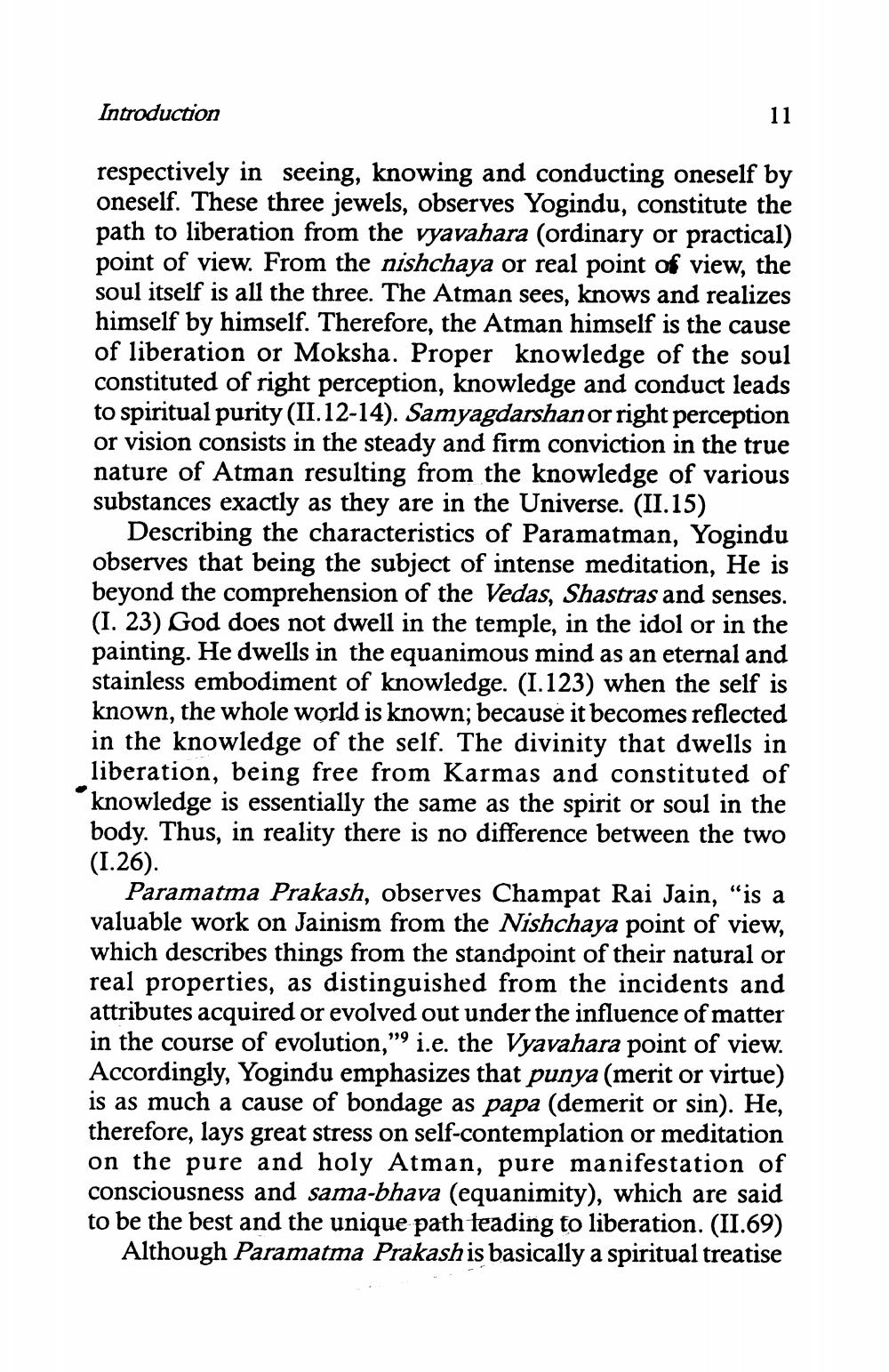________________
Introduction
11
respectively in seeing, knowing and conducting oneself by oneself. These three jewels, observes Yogindu, constitute the path to liberation from the vyavahara (ordinary or practical) point of view. From the nishchaya or real point of view, the soul itself is all the three. The Atman sees, knows and realizes himself by himself. Therefore, the Atman himself is the cause of liberation or Moksha. Proper knowledge of the soul constituted of right perception, knowledge and conduct leads to spiritual purity (II. 12-14). Samyagdarshanor right perception or vision consists in the steady and firm conviction in the true nature of Atman resulting from the knowledge of various substances exactly as they are in the Universe. (II.15)
Describing the characteristics of Paramatman, Yogindu observes that being the subject of intense meditation, He is beyond the comprehension of the Vedas, Shastras and senses. (I. 23) God does not dwell in the temple, in the idol or in the painting. He dwells in the equanimous mind as an eternal and stainless embodiment of knowledge. (I.123) when the self is known, the whole world is known; because it becomes reflected in the knowledge of the self. The divinity that dwells in liberation, being free from Karmas and constituted of knowledge is essentially the same as the spirit or soul in the body. Thus, in reality there is no difference between the two (1.26).
Paramatma Prakash, observes Champat Rai Jain, “is a valuable work on Jainism from the Nishchaya point of view, which describes things from the standpoint of their natural or real properties, as distinguished from the incidents and attributes acquired or evolved out under the influence of matter in the course of evolution,"' i.e. the Vyavahara point of view. Accordingly, Yogindu emphasizes that punya (merit or virtue) is as much a cause of bondage as papa (demerit or sin). He, therefore, lays great stress on self-contemplation or meditation on the pure and holy Atman, pure manifestation of consciousness and sama-bhava (equanimity), which are said to be the best and the unique path teading to liberation. (II.69)
Although Paramatma Prakash is basically a spiritual treatise




